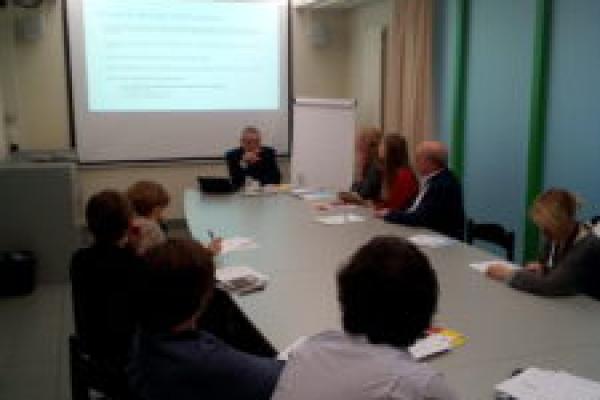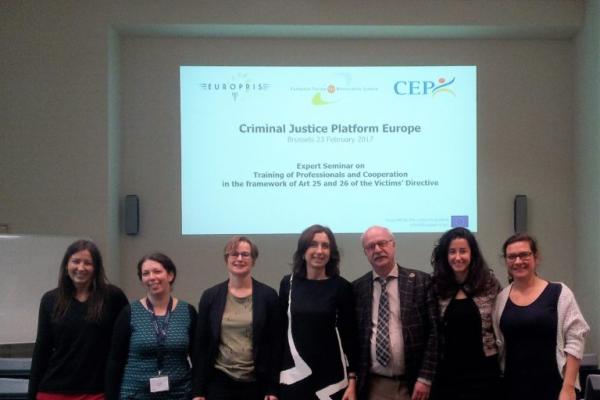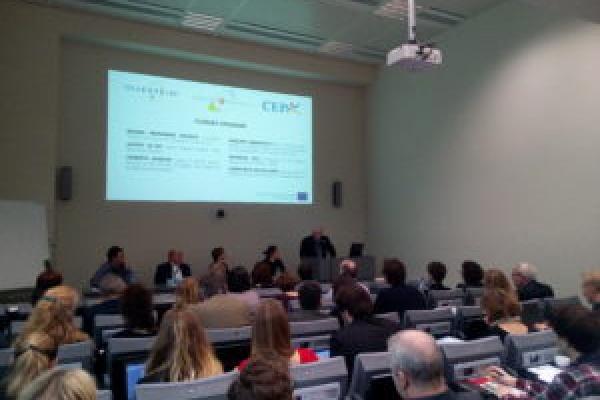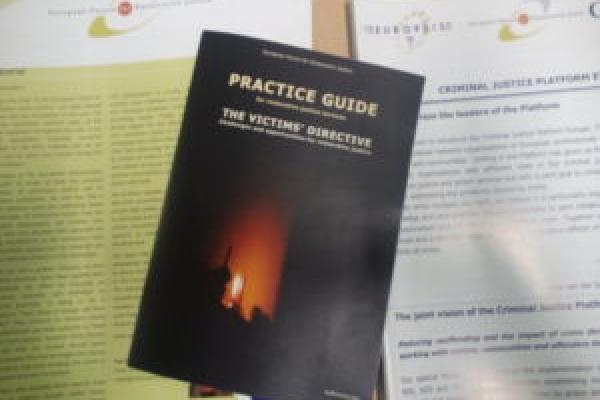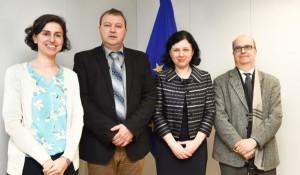The Criminal Justice Platform Europe (CJPE) organised an expert seminar on the implementation of the Victims’ Directive on 23 February 2017 in Brussels. The focus was on Art. 25 and 26, respectively on training of professionals and lay people and cooperation between services in order to provide better support and protection to victims of crime across Europe.
The seminar encouraged experts to discuss how to develop victim awareness within their services and better collaboration between organisations. 62 professionals from 18 different countries attended the seminar.
On this occasion the European Forum for Restorative Justice (EFRJ) released its latest publication, the ‘PRACTICE GUIDE FOR RJ SERVICES: The Victims’ Directive – Challenges and opportunities for restorative justice‘ together with the briefing paper proposed few months ago.
The seminar was chaired by Annemieke Wolthuis, vice-chair of the EFRJ Board.
SPEAKERS:
- REGINA HERNANDEZ: European Judicial Training team, European Commission
- LEVENT ALTAN: Executive Director Victim Support Europe
- ROBERTO MORENO: Head of Adults Justice Service at the Ministry of Labour and Justice of the Basque Government
- GERDJAN HOEKENDIJK: Chair of the European Network on Victims’ Rights and head Victim policy at the Dutch Ministry of Security and Justice
- BRUNILDA PALI: Researcher at KU Leuven Institute of Criminology – EFRJ
- CHRISTOPHE DE MUYLDER: Spokesperson of a Belgian collective of families of murdered children
WORKSHOPS
GUSTAVO DUARTE: Victim support service APAV, Portugal – on Training of professionals
BENJAMIN SAYOUS : French Institute for Restorative Justice IFJR – on Building cooperation between sectors via training on restorative justice
NIKICA HAMER VIDMAR: Ministry of Justice Croatia, Independent Service for Victims and Witness Support – on State of implementation of the Victims Directive in Croatia
ISABELLE VANDERHOEVEN: Department of Justice Houses, Flemish Government, Belgium – on Judicial victim support
ESTHER KLAASSEN: Gevangenenzorg Netherlands – on the European project ‘Building Bridges’
RADIM BURES: Vice-president of the Probation and Mediations Service of the Czech Republic – on the Project ‘Why me? II’
MALIN ISAKSSON & STINA SJöDIN: HR expert & senior advisor at the Swedish Prison and Probation Service – No offence while in prison
JANNEKE DE VISSER: Dutch Probation Service – on Training probation workers to increase victim awareness among offenders
You can find below some of the presentations of the plenary sessions and workshops as well as the practice guide and the briefing paper.


